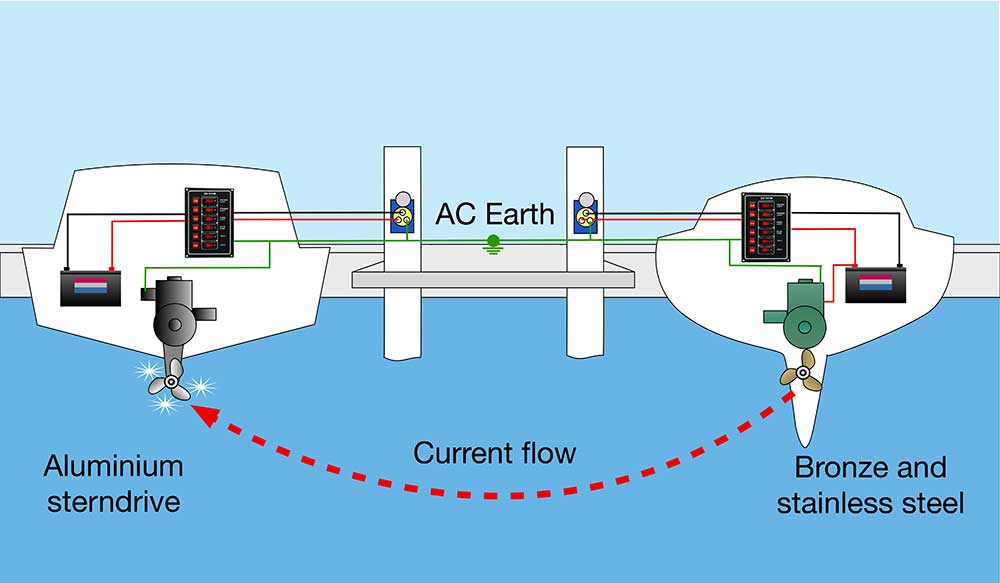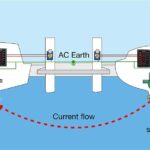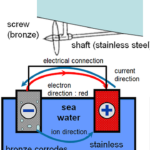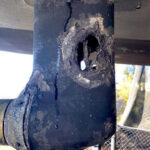CORROSION ELECTROLYSIS AND LIGHTNING SUPPRESSION
Corrosion electrolysis occurs when two different metal objects with different potential currents are connected by an electrolyte such as seawater. This form of corrosion is normally caused by stray electrical currents interacting with the submerged metal components of a boat.
Corrosion electrolysis is much more destructive than galvanic corrosion, to which it is often compared. To prevent corrosion electrolysis, a vessel must be wired properly, and outside sources of stray current must be identified.
When it comes to preventing this form of corrosion, the question is to bond or not to bond. Proper grounding and bonding systems can create a common electrical path to safely conduct any stray currents back to their source without passing through corrosive paths.
If you bond, you can monitor and protect everything. But if your systems are all tied together and a stray current touches any part, the entire system could melt away. Chains, thru hulls, rudders, and shafts can all be gone in less than a week.

One of the first steps in preventing corrosion electrolysis is having a potential meter in a conspicuous place where you can monitor it. Then, if you come aboard and see the meter pegged, start turning off the direct current (DC) breakers until the meter drops.
You can also forget about alternating current (AC) when it comes to corrosion. While working as an engineer in the 80s for a yacht builder, Greg put thru hulls in a saltwater drum and ran half an amp through them for a month. When he applied direct current, the hulls were completely corroded. Greg’s proven theory is that you should only think about DC, which is to the AC grounding wire what termites are to wood.
You’ll often see new high-voltage DC electric boats that have new shaft wipers. They are amazing and far better than anything up until the year 2023. These boats are created to handle all the leakage from the new DC motors used in propulsion.
Lightning protection systems on boats are like bonding wires used to control stray currents but are far stronger. When struck, all that energy has to go down cables and to the bottom of the boat without everything blowing up. You might be asking, what are the odds my boat will be struck? But we know it’s not worth the risk. Without the right protection, you can take a crippling hit to your vessel. Even without that strike, you’ll face costs in lightning insurance.



